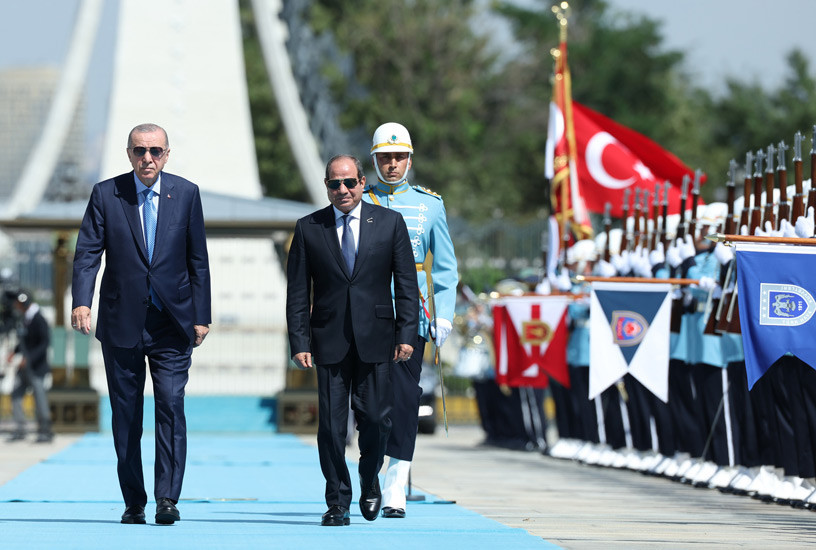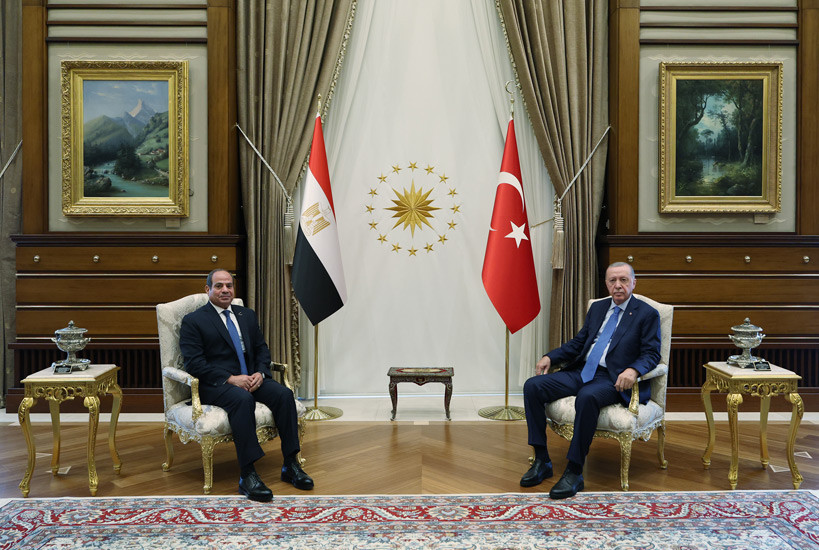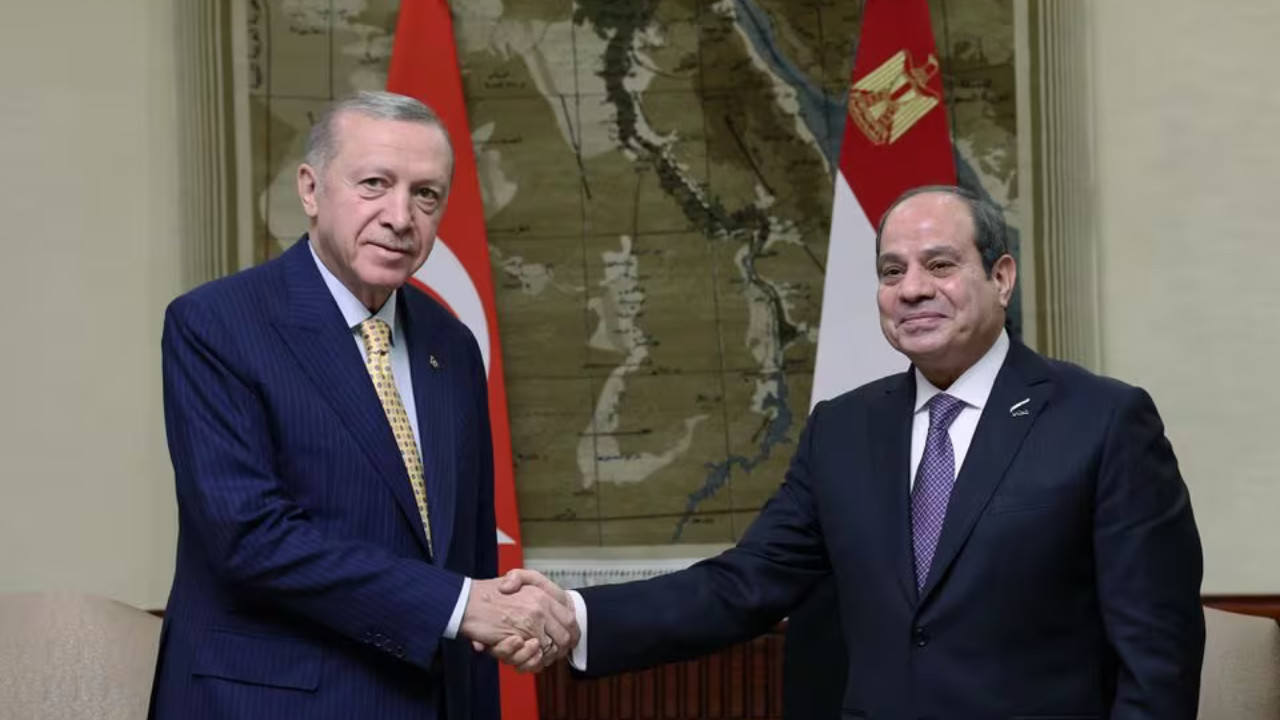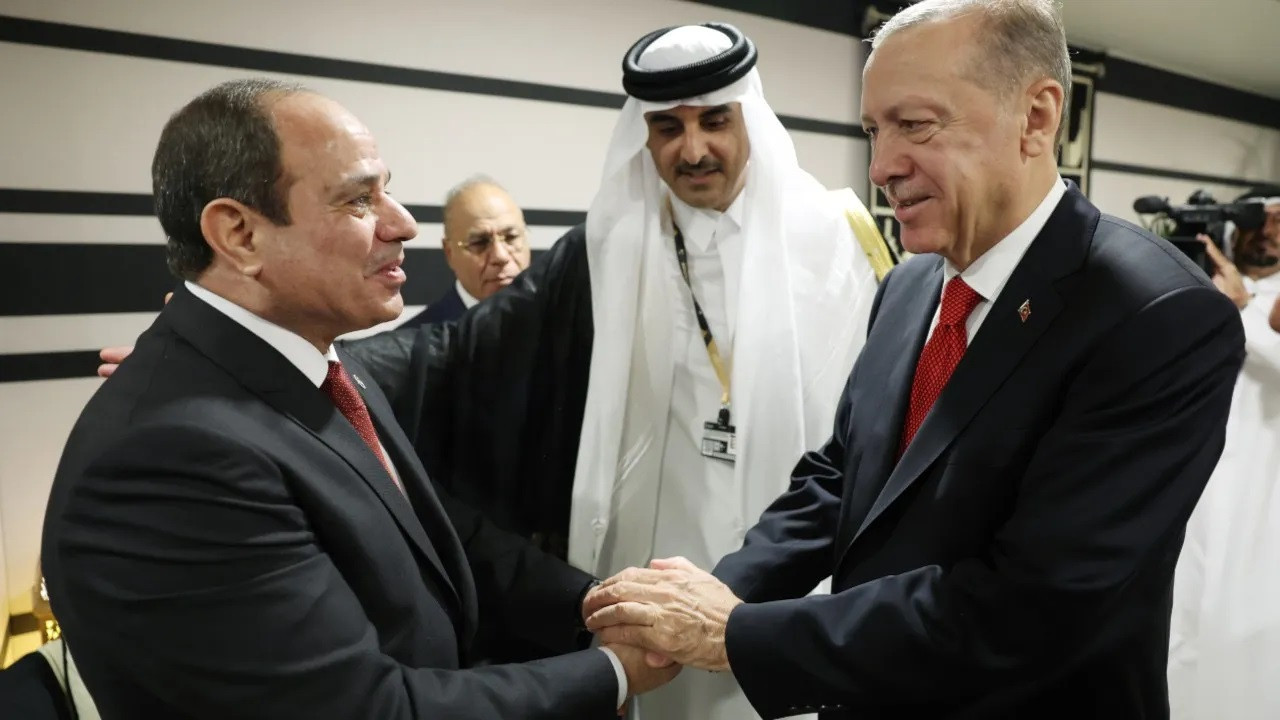Egypt's Sisi to make first presidential visit to Turkey in 12 years
Egyptian President Sisi has been set to meet with President Erdoğan in Turkey, marking the first visit at the presidential level between the two countries in 12 years as a significant step in the thawing of their long-standing strained relations.
Reuters & Duvar English
Egyptian President Abdel Fattah al-Sisi arrived in Ankara on Sept. 4 for talks with Turkish counterpart Recep Tayyip Erdoğan, the first such presidential visit in 12 years, amid a warming of long-frozen relations between the regional powers.
The visit comes after Erdoğan travelled to Cairo in February, his first trip to Egypt since 2012, taking a major step toward rebuilding ties that were severely strained for a decade.
"Turkey-Egypt relations will be reviewed in all their aspects and possible joint steps in the coming period to further develop cooperation will be discussed," the Turkish presidency's communications office said in a statement on Sept. 3.
"In addition to bilateral relations, there will be an exchange of views on current regional and global issues, especially the Israeli attacks on Gaza and the occupied Palestinian territories," it added.
President Abdel Fattah el-Sisi of Egypt will pay an official visit to Türkiye on September 4, 2024, at the invitation of President Recep Tayyip Erdoğan.
— Republic of Türkiye Directorate of Communications (@Communications) September 3, 2024
As part of the visit, President Erdoğan and President el-Sisi of Egypt will co-chair the first meeting of the High-Level…
Erdoğan met Sisi at Ankara airport before they left together in Erdoğan's motorcade for the presidential palace for a welcome ceremony. They will also chair the first meeting of the Turkey-Egypt High-Level Strategic Cooperation Council.
A joint press conference is scheduled for 5 p.m. (1400 GMT).

In a statement, Sisi said his visit - and that of Erdoğan in February - showed Ankara and Cairo's common will to launch a new phase of friendship and cooperation.

What happened?
Relations between Ankara and Cairo collapsed in 2013 after Egypt's then-army chief Sisi led the ouster of the Brotherhood's Mohamed Mursi, an ally of Turkey who had become Egypt's first democratically elected president the year before.
Mursi visited Turkey as president in 2012.
Ties between the two countries began improving in 2020 when Ankara launched a diplomatic charm offensive to ease tensions with its estranged regional rivals, including the United Arab Emirates, Saudi Arabia and Egypt.
Turkey and Egypt mutually reappointed ambassadors last year, and Ankara has said it would provide Cairo with armed drones. Erdoğan said in Cairo that the countries wanted to boost trade to $15 billion in the short term from $10 billion.
Turkey's state-owned Anadolu news agency said the two countries would sign some 20 agreements to boost commercial ties and cooperate on energy, defence, tourism, health, culture and education. It said deepening cooperation on renewable energy and liquefied natural gas (LNG) was also planned.
Turkey, which has condemned Israel for its war in Gaza, has sent thousands of tonnes of aid to Egypt for Palestinians and praised Cairo's humanitarian efforts and role as negotiator in ceasefire talks.
The tension between the two leaders began when then-Defense Minister Sisi staged a military coup against Egyptian President Mohamed Morsi in July 2013. After Morsi, a member of the Muslim Brotherhood, won the 2012 elections, Turkey, which had ideological affinities with the Morsi administration, took significant steps to strengthen ties.
President Erdoğan condemned the coup and refused to recognize Sisi as a legitimate leader, maintaining his opposition to Sisi both personally and institutionally. Ankara's stance led to strained relations with Saudi Arabia and Gulf countries, prompting criticism that "Turkey was left isolated in the Middle East." In response, İbrahim Kalın, the then-chief foreign policy advisor to the President, described this period in Turkish foreign policy as one of "precious loneliness."

 Erdoğan visits Egypt after 12 years, meets Sisi with Gaza in focusDiplomacy
Erdoğan visits Egypt after 12 years, meets Sisi with Gaza in focusDiplomacy Erdoğan-Sisi meeting to start to develop bilateral ties: EgyptDiplomacy
Erdoğan-Sisi meeting to start to develop bilateral ties: EgyptDiplomacy